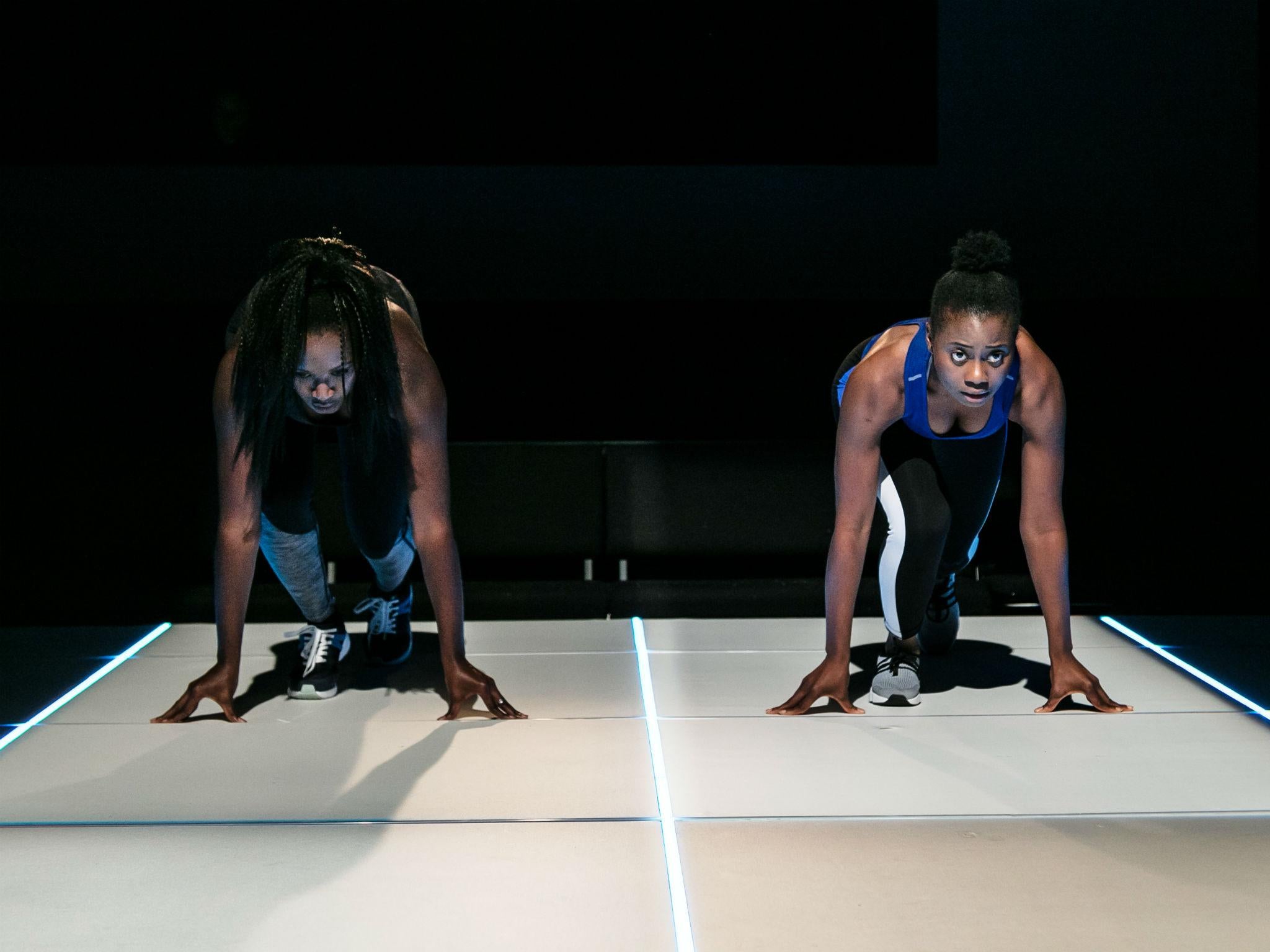Deny Deny Deny, Park Theatre, London, review: A thought-provoking couple of hours
Playwright Jonathan Maitland turns his focus to the topical issue of doping in sport in his latest play written for the Park Theatre

Your support helps us to tell the story
From reproductive rights to climate change to Big Tech, The Independent is on the ground when the story is developing. Whether it's investigating the financials of Elon Musk's pro-Trump PAC or producing our latest documentary, 'The A Word', which shines a light on the American women fighting for reproductive rights, we know how important it is to parse out the facts from the messaging.
At such a critical moment in US history, we need reporters on the ground. Your donation allows us to keep sending journalists to speak to both sides of the story.
The Independent is trusted by Americans across the entire political spectrum. And unlike many other quality news outlets, we choose not to lock Americans out of our reporting and analysis with paywalls. We believe quality journalism should be available to everyone, paid for by those who can afford it.
Your support makes all the difference.Jonathan Maitland has already written two memorable plays for the Park Theatre. Dead Sheep – now on tour – is a very funny and shrewd look at the fatal consequences for Mrs Thatcher of underestimating Sir Geoffrey Howe. Though it took some flak, in the run-up to the premiere, for insensitivity to the victims, An Audience With Jimmy Savile proved to be a responsibly shocking and well-researched take on how and why this prolific paedophile managed to forge a unique role in English culture and got away with grooming a nation. Maitland has a keen instinct for stories that will generate passionate discussion and a knack for asking the illuminating awkward questions – as one might expect from a man who was a television reporter for thirty years before he became a dramatist.
Now, in this latest trenchant piece for the Park, he turns his attention to the topical issue of doping in sport. The title derives from what he calls "the first rule in the doper's handbook”; if you're accused of cheating, deny it; deny it again and “carry on denying it until you can’t”. A Faustian drama, the piece focuses on Eve (Juma Sharkah), a promising black athlete who has her sights set on being the fastest 100m sprinter in the world. She brushes off the misgivings of her sports journalist boyfriend Tom (Daniel Fraser) and switches to a ruthless new coach, Rona (Zoe Waites), who wastes no time in manipulatively pitting her against a rival runner (Shvorne Marks) and putting pressure on her to shed Tom.
The physician Robert Goldman discovered that more than fifty percent of the elite athletes that he canvassed answered yes when he asked them the following question: if he or she could take a totally undetectable pill that would absolutely guarantee them a gold medal, would they take it, even if they knew it would kill them within five years? Rona reports this to Eve at the start of her Mephistopheles-like pitch. There are no known side-effects, she claims, to the cutting-edge therapy that she is offering. But will Eve be prepared to collude in the manipulation of her genes – a modification that does not come under the existing code of practice and would not show up in any legal test – in order to achieve sporting supremacy?
Premiered in Brendan O'Hea's sharply-acted, in-the-round production, the play is set in the future – partly so that it can't be overtaken by developments, partly to exacerbate our concern about the degree to which this experimentation may be already happening. I preferred the first half where Waites's balefully charismatic Rona rasps out initially seductive but, on inspection, specious and twisted arguments in an effort to suborn the girl. “Cheating is a nationalised industry,” she proclaims, asking rhetorically “Do you know what the Russian for 'sportsmanlike' is?” So far, so persuasive. It's when she claims that Eve's “privatised” method of performance-enhancement would would be striking a blow against the “whole rotten system” – rather than descending to its level – that one recoils from the pseudo-logic. “An unfair advantage is what sport is,” declares the sprinter in the second half, acknowledging the physical inequalities that make some perform better than others. Can a meaningful definition of sport survive the latest scientific advantage. A thought-provoking couple of hours, worth catching.
Join our commenting forum
Join thought-provoking conversations, follow other Independent readers and see their replies
Comments